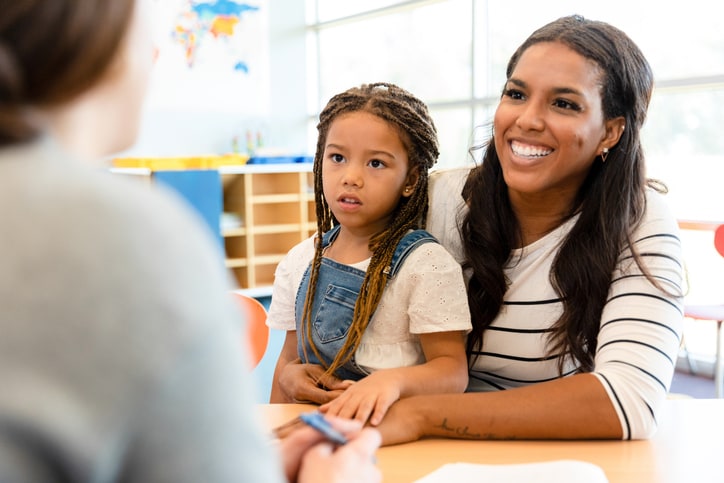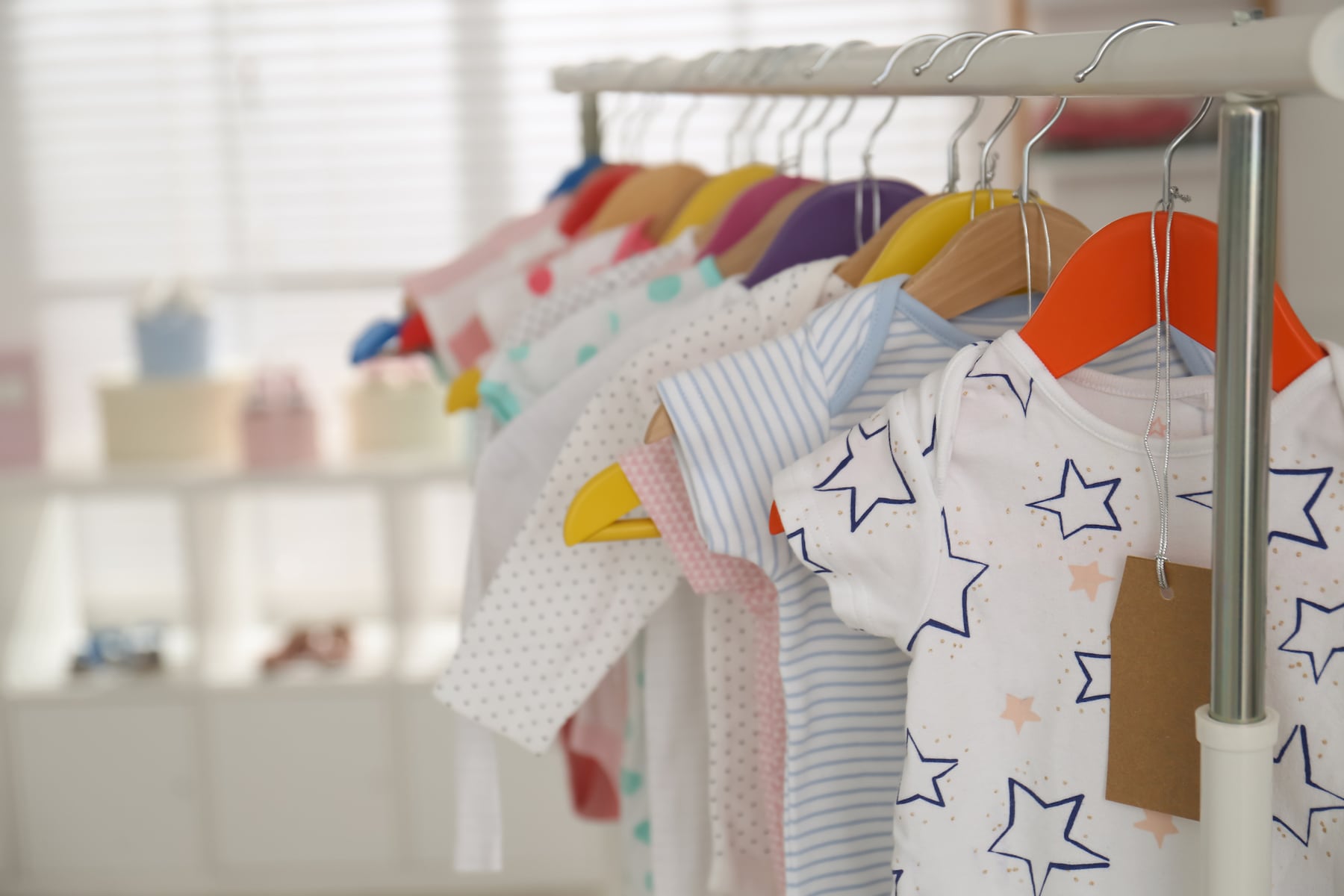Parents often struggle with the decision to turn over some of their child care duties to a caregiver from outside the family. For parents of children with cerebral palsy (CP), this can be especially challenging. For the parents interviewed below, finding caregivers who are understanding and respectful and who can act as advocates for their child while fostering their abilities is key to a successful caregiving relationship — even more so than previous experience working with children with CP or other special needs.
When a great caregiving match is made, the entire family benefits. Amy, a college senior, loved volunteering at a special education school last summer and hoped to find a caregiving position for a child with special needs. In her search, she found 10-year-old Steven, who has CP. “I like how it’s so easy to work with him,” Amy says. “He’s so happy all the time, even when he’s struggling.”
Steven’s mom, who was initially drawn to Amy’s dependable and responsible nature confirms, “They’re really good together. My son has a great sense of humor and tries to make her laugh.” Amy’s enthusiasm and willingness were key to her match with Steven — and this is often more important than caregiving skills alone.
Why parents need caregivers
Hiring a caregiver who can help means that family members do not have to always be the therapists, nurses and caregivers. Instead, everyone has a chance to be themselves. L.H. knows this firsthand. His 10-year-old daughter has “a big, beautiful smile” and is very social. But her full-time care — including dressing, feeding, transferring and toileting — can be fatiguing and physically demanding.
“We like to have three caregivers available, so no one gets burned out or overwhelmed.” He adds, “This gives parents a break and allows for a normal family life, so not every moment is taken up with (her) direct care.” Like other parents, he expresses how family dynamics are impacted by caregiving help in positive ways.
Children benefit greatly from caregivers
Caregivers bring in fresh energy. “They can bring her to the park, take her horseback riding, read to her — they can just focus on her,” explains L.H. Having caregivers allows for a slower pace. With one-on-one attention, children can have the time to be more independent and work on their dressing, feeding, toileting and communicating.
Different caregivers provide different learning opportunities. Each caregiver will teach your child something new, and each will have different expectations from your child. Parents of children with CP often focus on a caregiver’s willingness to learn and to be part of their family, as opposed to their having specific medical certifications or training.
Caregivers can benefit the rest of the family
Spousal relationships can be nurtured. “It was very important to me that my husband and I got away,” says L.B., whose two children with CP passed away in 2004 and 2005.
Other children in the family can receive parental attention. Using caregivers allows L.H. and his wife time to focus on their 13-year-old daughter, who does not have special needs.
Finding a caregiver
“It has not been easy at all,” says E.G. about trying to find a personal care attendant for her 15-year-old daughter. L.B. agrees that finding caregivers was often frustrating. She looked for people who had “a sense of heart for kids” and felt that a quick learner with a good attitude is preferable to a person who has experience but not the right attitude.
Finding the best qualities in a caregiver
E.G. senses immediately if a potential caregiver is sensitive, kind and patient. “My daughter will reach out her hand to people,” she says, “and if they don’t take her hand right away, they have failed.”
In addition to being warm and caring, parents should also look for the following attributes:
- Reliability and dependability. Your caregiver will be responsible for one of the most precious things in your life.
- Physical ability. While some children with CP can get around by themselves, others may need to be transferred in and out of a wheelchair, bath, bed, etc. A small child may not be difficult to carry, but carrying and/or transferring a bigger child can be physically demanding.
- Respect, especially for older children. A caregiver should not be patronizing. “You need someone wise enough to reach out to the person underneath the disability,” says L.B.
- Ability to communicate in the family’s language. When too many misunderstandings occurred due to a language barrier, one parent had to let a caregiver go.
- Same gender as the child, especially if toileting is required
Read our article on other traits you should look for in a caregiver.
Making a care plan with your child’s caregiver
It’s important to sit down with new caregivers and describe your child and his or her routines in detail. Leaving specific written instructions for daily care is essential. Thought this applies to parents of children without special needs, it’s especially important for parents of children with CP, especially if your prospective caregiver hasn’t worked with children with special needs.
Some areas parents may cover include:
- Favorite things. What toys and activities does your child enjoy? What might be a good way to spend a day?
- Communication. Some children are verbal; others may use signing, communication boards or nonverbal communication such as eye contact, facial expressions, and gestures to express needs, likes and dislikes. L.B. used to make a list of her daughter’s signs, primarily to demonstrate how bright her daughter was as well as show a caregiver that there was a lot to look for in their interactions.
- Feeding. This should cover aspects ranging from food preparation and how to cut up the food, to whether or not the child can feed him or herself, to how much time it takes for a child to swallow, to how frequent the meals should be.
- Dressing. Let your caregiver know what works best. For example, L.B. would share two helpful tips with caregivers: when putting on a jacket, put the involved arm into the jacket first, followed by the stronger arm. When taking off the jacket, remove the stronger side first. Second, when putting on leg orthotics, bend the knee, which will cause the ankle to bend. This will allow the orthotics to be more easily placed.
- Temper tantrums and discipline. Some children may have temper tantrums when they become frustrated because they are unable to verbally express emotions. How should a caregiver react to a tantrum? What type of discipline should the caregiver use?
- Seizures. If your child has seizures, make sure to describe the symptoms as well as instruct a caregiver about how to handle them. When L.B. saw the fear caregivers experienced when discussing her children’s seizures, she instructed them to call 911 if a seizure occurred, even if she and her husband would have managed it at home.
In addition to the daily routines, parents might also want to review any safety expectations such as:
- Water safety. If the caregiver will be taking your child swimming, detail the expected precautions
- Vehicle safety. Check the driver’s license and driving record, and make sure the caregiver can drive a van (if required)
- CPR and First Aid. Is the caregiver trained in these techniques and does he or she feel comfortable administering them?
While discussions are helpful, spending time with you and your child will best demonstrate what the caregiver’s responsibilities will be. Have your caregiver watch, gradually participate in and, when both sides feel he or she is ready, take over the full responsibilities.
Enjoy the partnership
Caregivers fall in love with the kids when they meet them, says L.B. While you take advantage of and become re-energized from the respite care, appreciate the joy your caregiver is getting from your child, and vice versa.
Helpful resources
Deborah Elbaum, M.D. is a mother of three children and lives in Massachusetts.





